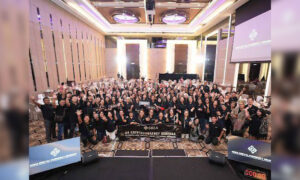The rise of artificial intelligence (AI) has revolutionized countless industries, from healthcare and finance to art and design. Yet, as generative AI tools for creating images and videos proliferate, ethical concerns about the origins of training data have emerged. Many artists and creators have raised their voices, demanding fair compensation and acknowledgment for their work, which has been used without permission to train AI models. This growing dialogue is not only shaping the future of AI but also opening new opportunities for collaboration between creators and AI developers.
The Ethical Dilemma in AI Training
Generative AI models like those from OpenAI and Stability AI rely heavily on vast datasets to function. These datasets are often scraped from the internet, encompassing everything from public domain works to copyrighted content. While this approach has driven rapid advancements in AI capabilities, it has also drawn criticism for exploiting the intellectual property of creators without consent or compensation.
Artists and photographers have responded by filing lawsuits and organizing campaigns to protect their rights. At the heart of the issue lies a fundamental question: Can AI progress in harmony with the creative community?
A Turning Point: Ethical Licensing of Creative Works
The shift towards ethical licensing marks a significant turning point in this debate. Platforms like Wirestock have emerged as pioneers in providing solutions that respect artists’ rights while meeting the needs of AI developers.
Wirestock enables photographers and artists to license their works not only for traditional stock imagery but also for AI training. Through partnerships with major marketplaces such as Getty, Adobe Stock, and Canva, creators can distribute their content while retaining control over how it’s used.
In addition to these partnerships, Wirestock gives creators the option to allow their work to be used in AI training datasets. This innovative approach ensures that creators are paid for their contributions, addressing one of the most pressing concerns in the AI ethics debate.
Empowering Creators in the AI Ecosystem
For creators, platforms like Wirestock represent a chance to monetize their work in new and meaningful ways. The company’s commitment to ethical practices not only secures fair compensation but also fosters trust within the creative community.
Wirestock’s CEO, Mikayel Khachatryan, has emphasized that ethical licensing is not just a legal necessity but also a practical solution for AI companies. These companies require high-quality, diverse datasets to train their models effectively, and ethically sourced content provides a reliable foundation for innovation.
AI Training as a Revenue Stream
For many creators, licensing their work for AI training has proven to be a lucrative revenue stream. Payments range from microtransactions for bulk data purchases to significant sums of $15–20 per individual artwork for specific projects. This model not only compensates creators fairly but also incentivizes the production of high-quality content tailored to AI needs.
Wirestock further supports its community through initiatives like creative challenges, which offer additional income opportunities. By participating in themed projects, artists can earn prizes and gain exposure, expanding their potential earnings.
The Path Forward: Collaboration Over Conflict
As the AI industry continues to evolve, collaboration between creators and developers will be essential. Ethical licensing platforms demonstrate that it is possible to balance technological progress with respect for intellectual property. By involving artists in the AI training process, companies can foster innovation while addressing ethical concerns.
The future of AI lies in its ability to learn from diverse, high-quality data—and this data begins with the creators. By shaping the training models of tomorrow, artists and photographers are not only influencing the capabilities of AI but also carving out a new role for themselves in the digital age.



































